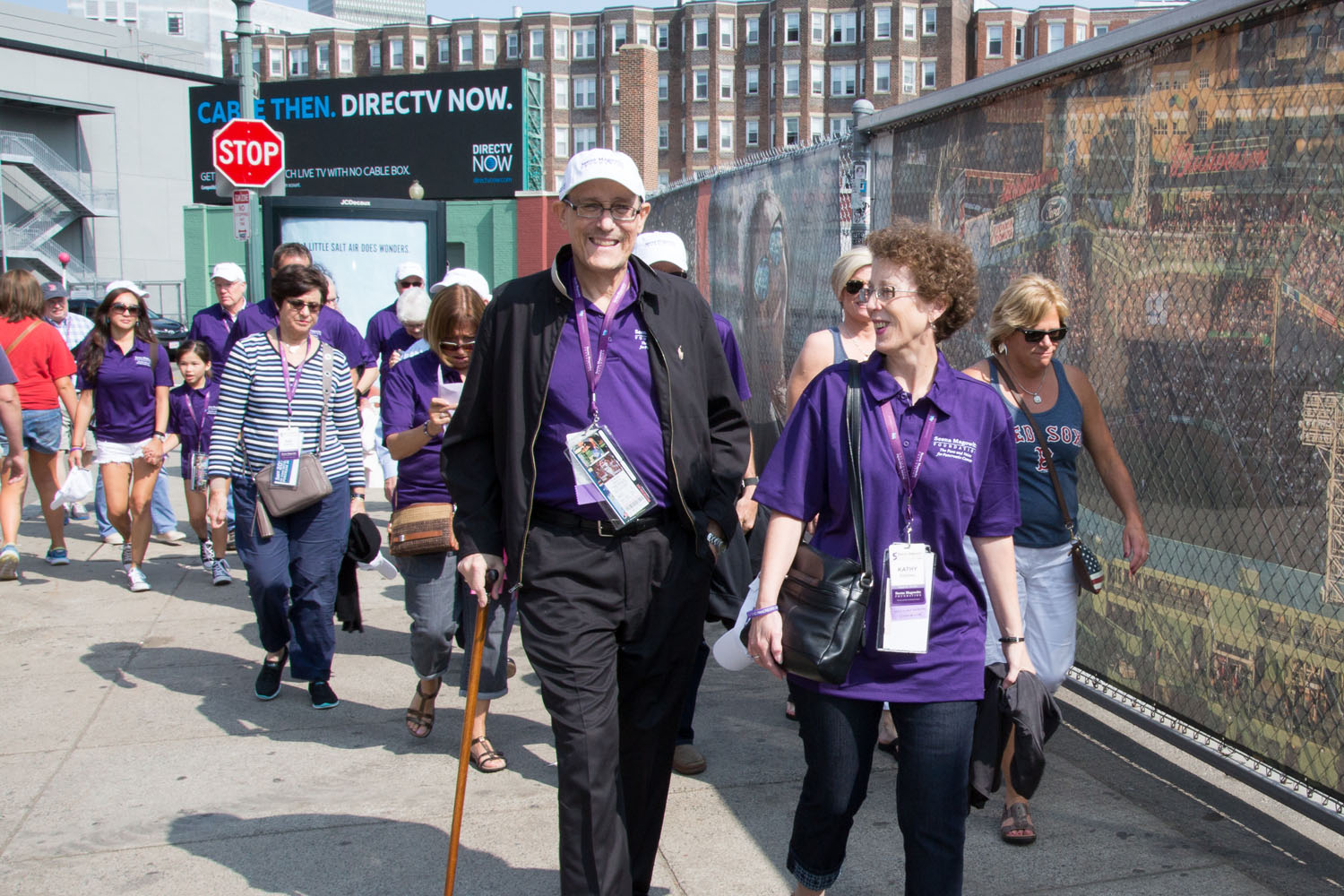A Message From Phil Zeblisky A Pancreatic Cancer Warrior. The Power of Positive Attitude Towards Extending Quality Life

Editor’s Note:
Pancreatic patient, Phil Zeblisky passed away January, 2018 just days after mustering the strength to write this touching piece giving advice to pancreatic patients to always sustain faith and positive attitude which Phil believed leads to longer life spans and a better quality of life. With his warrior attitude and help from his medical team he conjured-up the courage and will to live for 44 months. Phil was an avid supporter of the Seena Magowitz Foundation. His widow, Kathy continues to generously support the mission of the Foundation. We miss Phil and are forever grateful for his kindness, generosity, positive attitude and wisdom he shared with other patients and their loved-ones.
January 2018
I was diagnosed with pancreatic cancer (adenocarcinoma) in May, 2014. At the time of diagnosis, surgeons believed they could perform surgery to remove the cancer in a surgical procedure known as the “Whipple Procedure“, a very complex surgery. In my Whipple procedure the surgeon intended to remove the head of the pancreas, the first part of the small intestine, the gallbladder and the bile duct. Unfortunately, shortly after the surgery began, the surgeon discovered the pancreatic cancer had already spread (metastasized) to my liver which resulted in a diagnosis of Stage 4 disease. The conventional wisdom is that surgery is not performed if the diagnosis is Stage 4 and the surgery was aborted and I was left searching for other treatment options.
In June, 2014 I enrolled in a clinical trial through TGen and HonorHealth Research Institute and administered at the Virginia G. Piper Cancer Center in Scottsdale. It involved delivering three chemotherapy drugs: Gemcitabine, Abraxane and Cisplatin. In October 2014, after 17 treatments, doctors found no evidence of disease. My story was told by several local media outlets and for the next six months, my condition remained relatively stable and I did not require further treatment.
Unfortunately pancreatic cancer is pernicious and in April, 2015 the cancer returned. In response I received chemo again from April until October of 2015 when it again appeared that further treatment would not be required. The cancer appeared to be stable until January, 2016 at which time the cancer reappeared and I decided to re-attempt surgery.
I had my second surgery almost two years ago. In the past, surgeons would not do surgery after Stage 4 disease was detected, but now, due to dramatically improved chemotherapies such as those being developed by TGen and funded in part by the Seena Magowitz Pancreatic Cancer Foundation, more and more surgeons are willing to undertake surgery after chemotherapy has been successful.
Despite an apparently successful surgery, my tumor marker—a gauge of the extensiveness of cancer—surged starting in April, 2017. By December 2017, doctors told me no further treatment was possible.
Lessons Learned
You have to keep a very open mind and you have to constantly be thinking about potential risks and rewards for various treatments. Stay calm and be measured and realistic in the way you approach a treatment. Staying optimistic and trying to live as normal a life as possible after a devastating diagnosis had a profoundly positive impact on me and my family. If you do not maintain a positive attitude, you run the risk of letting the disease overwhelm not just you but those who you love. Your family will need to continue to live their lives and a calm and measured attitude will allow them to continue to live that life.
Think out of the box. I believe if I hadn’t thought “out of the box” about my Stage 4 pancreatic cancer diagnosis, I probably wouldn’t still be alive after 44 months.
Throughout the most trying, death-defying ordeal a human being can endure, I’ve tried as hard as I can to continue to live my life with a normal routine, with the greatest degree of normalcy that I could. I continued to work between half and three-quarter time (as an accountant for Maricopa County Superior Court in Arizona. I’ve continued to try to see people and do things as best I could. I’ve tried to recognize that positive attitude is something that’s going to determine your success during the journey. If you allow yourself to descend into depression, it’ll only further compromise your life and the lives of those around you. My wife Kathy and I have traveled out of town six times since my diagnosis (including to Boston last August, 2017 for the Seena Magowitz Golf Classic fundraising event).
And that leads to my fourth piece of advice: always be open to clinical trials—courses of care not yet approved by the Food and Drug Administration that can produce life-changing results. While treatments for pancreatic cancer have improved dramatically since 2011, there is still a long way to go and clinical trials represent the future of that progress.
The Seena Magowitz Foundation
The Seena Magowitz Foundation has been an incredibly important player in raising funds for research into pancreatic cancer treatments. Roger Magowitz, the son of the Foundation’s namesake and the Foundation’s founder raises money for pancreatic cancer research as a labor of love, and the funds he raises are not impacted by administrative costs. Roger and the Foundation have connected researchers with pancreatic cancer survivors so they can better understand each other’s point of view. I really appreciate that Roger’s generosity is DIRECTED philanthropy aimed specifically at research.
Because of the combined efforts of TGen, HonorHealth Research Institute and their world-renowned cancer researchers, Daniel Von Hoff, M.D., Erkut Borazanci, M.D. and Sunil Sharma, M.D., and support from organizations like the Seena Magowitz Foundation, many pancreatic cancer patients like me are living way beyond the months-long prognosis often given to them when they’re diagnosed.
